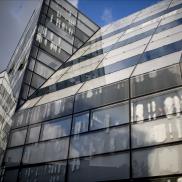Publish at
Presentation
Of all the mammals studied, mouse became the model of choice for several reasons. Its genome is known since 2002 and we share approximately 95 % of our genomes. Moreover, is has a small size and relatively rapid generation time.
Mouse is an important tool for understanding gene function, researching human diseases, or testing responses to a therapeutic intervention.
New transgenesis techniques have emerged as powerful new tools for genome modifications, especially Crispr/Cas9 system and this is what the Federative Research Structure – Necker aims to develop.
Our main mission is the generation of genetically modified mice with Crispr/Cas9 system.
The plateform will provide :
- Embryo production (available strains : C57Bl/6J, FVB/N, B6D2F1)
- Zygote injection at pronuclear stage with Crispr/Cas9 components
- Transfer of the injected embryos in pseudopregnants females
- Tail biopsy of the newborn pups
The Transgenesis Platform is located in the Animal Experimentation and Transgenesis Laboratory (LAET) in the Imagine Institute.
Equipment
- A CO2 incubator
- A -80°C freezer
- A Leica DMIRB inverted microscope
- An Eppendorf NK2 micromanipulators
- An Eppendorf Femtojet micro-injectors
- 2 stereomicroscopes
Team

Research: a scientific adventure
Our goal: to better understand genetic diseases to better treat them.


